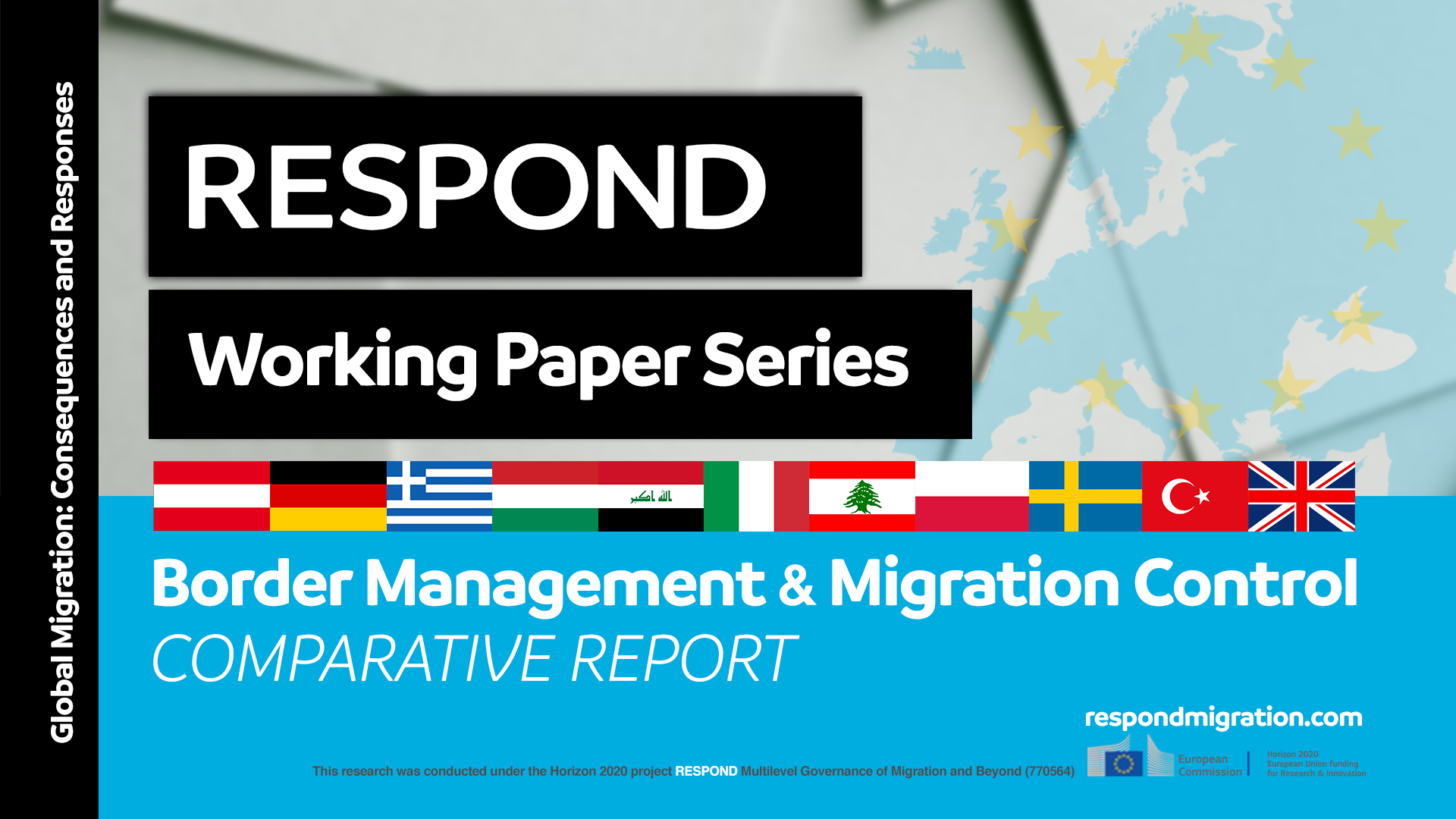Ela Gökalp Aras, Zeynep Şahin Mencütek - Swedish Research Institute in Istanbul | Evangelia Papatzani, Nadina Leivaditi, Electra Petracou - University of the Aegean
This comparative report is based on the RESPOND country reports [deliverable D3.1] that discusses the developments regarding legislation, policy measures and practices on refugee protection, but most importantly the implementation aspect in ten countries covered by the project (Austria, Germany, Greece, Iraq, Italy, Lebanon, Poland, Sweden, Turkey and the United Kingdom) for the 2011-2019 period. This report aims to provide a comparative analysis of refugee protection, emphasising the implementation aspect as drawn from the experiences and perceptions of meso and micro level actors. In doing so, the report offers analytical insights for evaluating the implications of the dynamics of refugee protection, which has undergone many changes since 2011.
Read More






